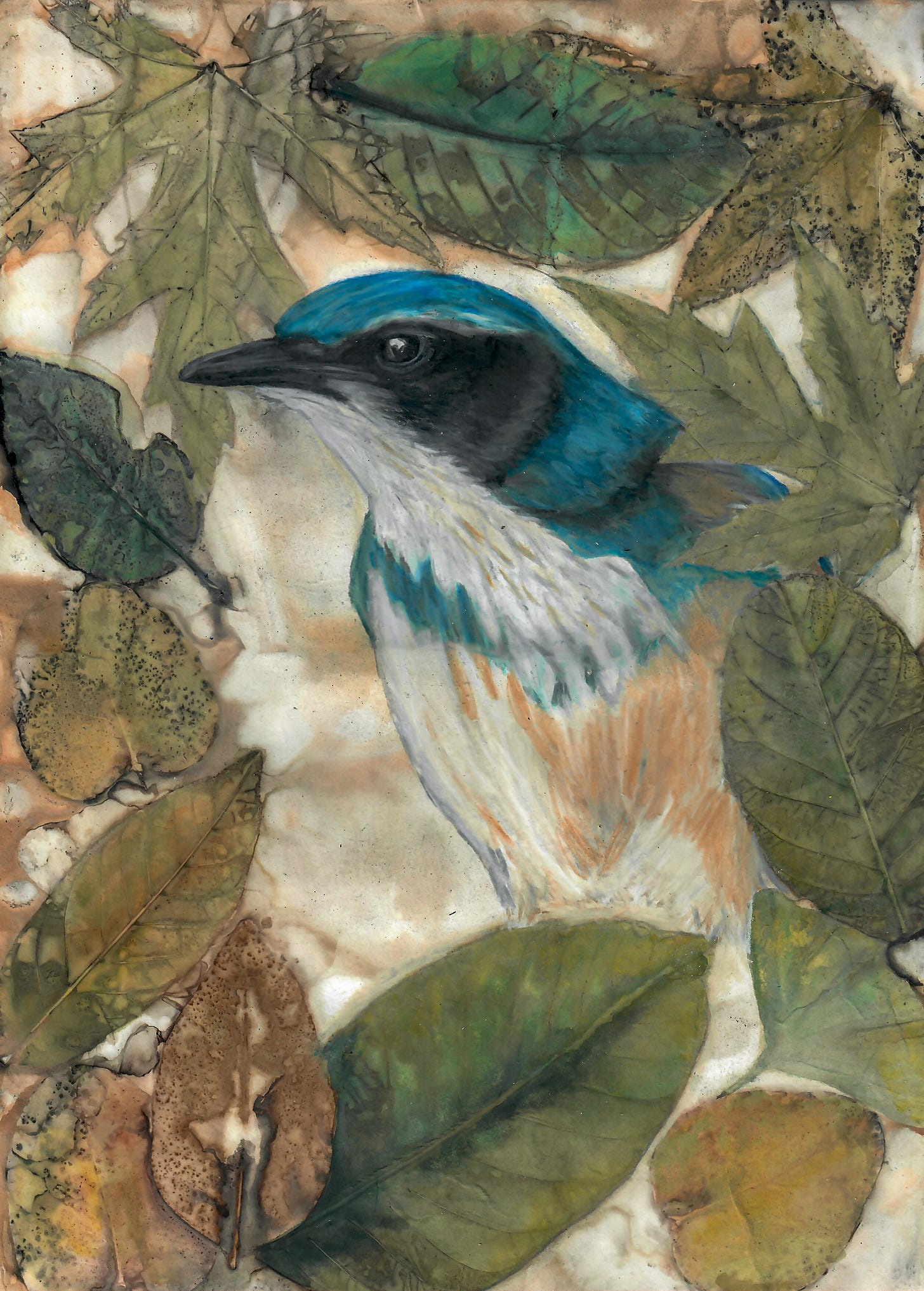My Favorite Animals Are Humans
Predatory jays, red in claw, and human compassion.
Earlier this week, while taking a break from my desk to bring in the emptied trash bins, there was a sudden ruckus in the front yard. A chorus of house sparrows, starlings, and acorn woodpeckers clamored about someone’s imminent demise. I wandered in the direction of the noise expecting to see a Cooper’s hawk. Instead, I discovered the neighborhood pair of California scrub jays attempting to dispatch a young house sparrow.
I know that all corvids are prone to eat meat, especially if they are feeding young. However, it is not something I have ever witnessed - and it wasn’t pretty. Jays have plenty of smarts, but they are ill-equipped to deftly dispatch larger prey. Rather than the snatch, dispatch and wing-it action of a Cooper’s hawk, there was an all-out brawl in the street. I didn’t want to look away, but my stomach was in knots all the same.
If I interfered, it would be one less meal for young jays and more invasive house sparrow living to push native hollow-nesting birds out of the choice spots in the front yard pines. All the same, nothing deserves to suffer. So, when a car bumped the jays into a short retreat from their mission, I inserted myself. I lifted the sparrow off the street, apologized for its short, brutalized existence, ended its suffering, and gave it back to the jays.
It had never been easy for me to insert mercy on wild hunts with raptors. When I was young, I imagined that I would get used to it. Raptors, in fact all predators, seem to have no sense of the suffering of their meals. Sometimes, or perhaps, often times, part of my job in the field is to bring my humanity to the hunt. Yet, to my surprise, it has only gotten harder over the years. I suppose it should never be easy, but I wonder sometimes if the end of falconry for me is going to be the day I find I can no longer fulfill this obligation to the hunt.
I thought about all of this as I returned inside my house feeling done with nature and wishing the scrub jays had stuck to the peanuts I provide them. Yet, you could never make me say that humans shouldn’t be a part of nature. In fact, the one thing I could argue is that we bring to nature is compassion. It’s the greatest gift we have to give nature and it’s the greatest tool we’ll bring to the table to save it.
Sure, there’s a whole theory about survival of the nicest in nature and endless clickbait videos on social media that are supposedly wild animals showing compassion for one another. In most of those videos the behavior is vastly misinterpreted. Animals are sentient and they have emotions, but compassion isn’t something nature provides. I wouldn’t say it never happens, but in my experience working with wild animals, it’s an anomaly. I would say that compassion is our job and we are uniquely qualified for it.
Perhaps this is why even though I adore animals and my life revolves around them, I do not love animals more than people. In fact, people are my favorite animals. They are just as mysterious, surprising, and sometimes as dangerous as anything wild. Yet, the vast majority of them have this deep well of compassion that they draw from in the worst of times and have the potential to better the world seemingly impossible ways. Working in the realm of community-based organizations, I see it every day. Human beings are amazing.
So when people tell me that they’d choose an animal over a person, I always hope they are exaggerating. It’s okay if I’m not their favorite animal, but I hope to be one of the animals they want in their life. If we can’t let each other in and we can’t share our compassion with one another, how will we ever save all that is wild?
I have forgiven the scrub jays. I’ve even accepted that if they continue their forays in sparrow hunting, I may be called on again. No matter how hard it is at times, it is the greatest thing I have to offer. I want to save the world, but perhaps some days, compassion is enough.





Thank you Rebecca for sharing your story of the jay and the sparrow.
Your description of what you witnessed, how you felt, what you pondered, and what you ultimately did creates a complete picture of a lived experience.
A picture that speaks to your humanity; a gift that resonates and needs to be more generally shared.
Thank you again,
Susan
Thank you Rebecca. I shared this to Facebook.